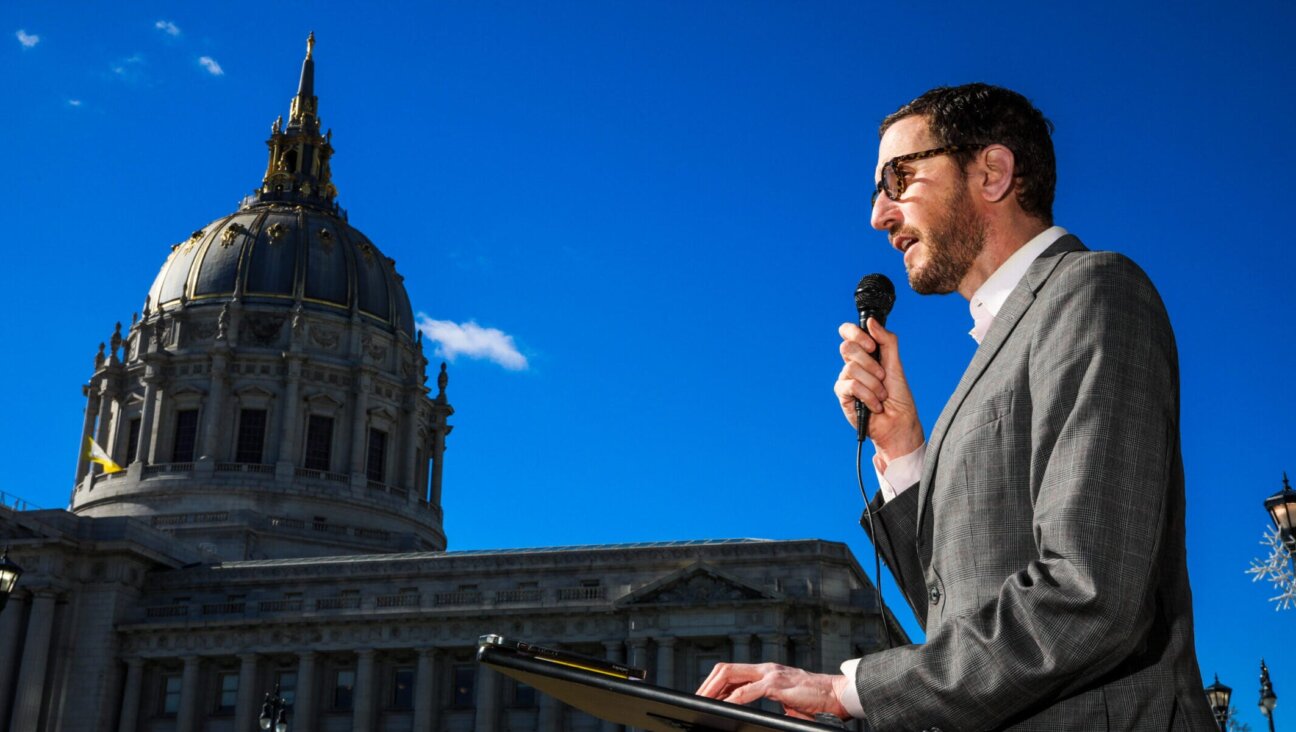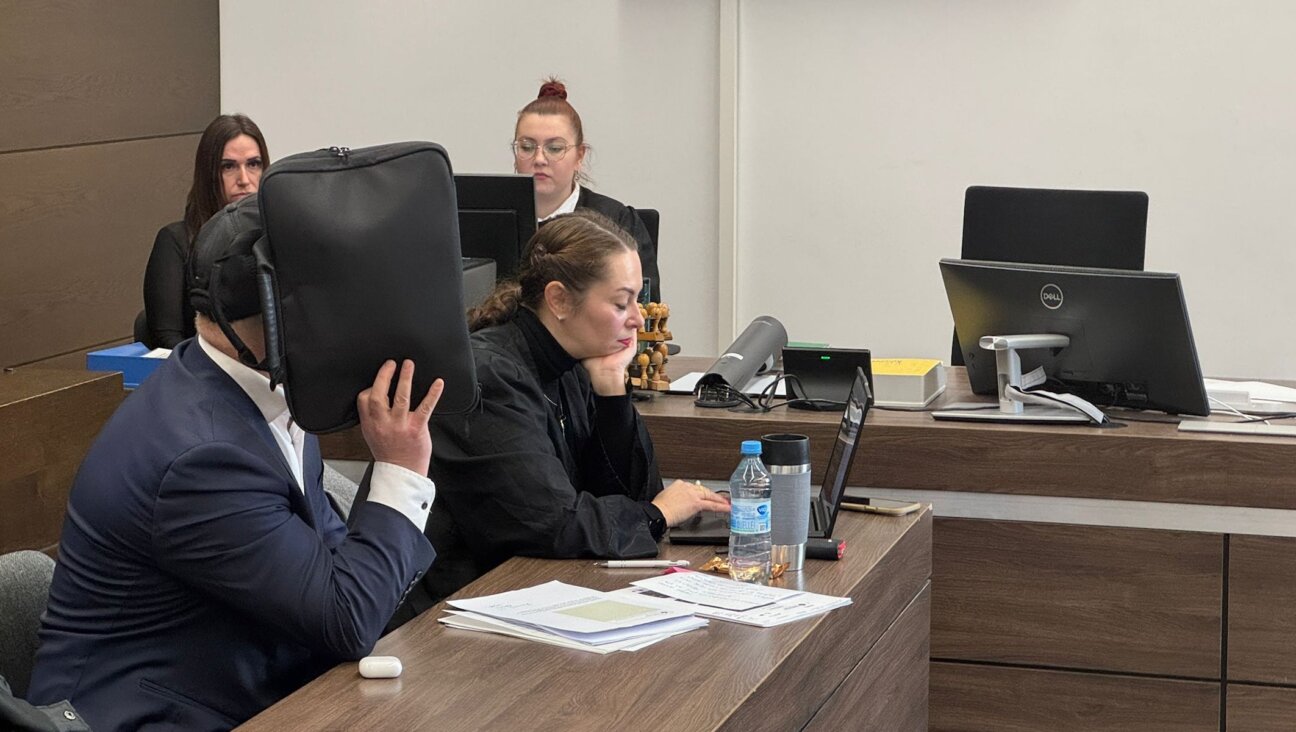This Passover, college campuses like mine are caught in a very narrow place
How remembering our enslavement and liberation can help us navigate out of it

The campus of Wesleyan University. Photo by Denis Tangney Jr./iStock by Getty Images
I once studied with a rabbi who told me that whenever one is not sure of an answer to a question — any question — one should simply say, “Because we were slaves in Egypt.” Whatever the question, he advised, this answer would be a good place to start.
Passover, of course, is the holiday of freedom and memory, when we Jews celebrate our exodus from that period of enslavement in Egypt. Mitzrayim, the Hebrew word for “Egypt” also means “narrow place.” This Passover, more than any I can remember, feels like we are stuck in a narrow place amid the crisis in the Middle East and the rise of antisemitism around the world.
Campuses are boiling with unrest because many students feel that their institutions are participating in patterns of murderous oppression. They see the people of Gaza as the ones in “the narrow place,” and are demanding we cut all ties with Israel, divesting from companies that manufacture weapons used in the war and ending academic exchanges.
Roger Cohen, a longtime New York Times international correspondent, spoke recently at Wesleyan University, where I am president, about covering the Oct. 7 Hamas terror attack on Israel and its aftermath. He described the bone-chilling experience of walking through the sites of the massacre in Israel. The discovery of dead bodies and parts of bodies, people cruelly murdered by gleeful marauders — some first tortured, raped, or forced to watch the killings of loved ones before being murdered themselves.
Cohen also described talking with Gazans who lost dozens of family members when bombs dropped by the Israeli Defense Forces landed on their homes. Mothers, fathers, children —so many children — either wiped out in a second or left to die slowly under the rubble of what had been their own homes. Most were not fighters, just people trying to stay alive. Is there any doubt that those who have survived are more likely to become fighters because of the savage reprisals carried out against their loved ones?
If Hamas cared about the well-being of Palestinians, it could negotiate a surrender with the help of its Qatari friends, and turn the extraordinary amount of funding it has long received toward building an international coalition that would aim at securing rights for its people. But killing Jews is more important to Hamas than feeding Palestinian children. The well-armed and well-fed fighters burrowed beneath what are now the ruins of hospitals and schools could lay down their arms, but instead are intent on making martyrs of their countrymen.
Hamas can stop the fighting today by liberating the hostages and freeing the human shields that protect their tunnels of terror. For more than six months, scores of civilians abducted from Israel have remained in the most appalling conditions. Their Passover this year is a very narrow place filled with sexual assault, torture and the constant fear of death.
Meanwhile, Israel’s military campaign in Gaza reeks of savagery. Inflicting starvation on the Palestinian population of Gaza does nothing to advance the liberation of the hostages; it does nothing to strengthen Israel’s security or the cause of peace. The Israeli strategy seems to be to unleash a series of plagues on Palestinians without any thought of liberation or redemption.
Since the leaders of the Israeli government are motivated to prolong a war that serves their selfish political interests, U.S. government officials must make military assistance dependent on a plan for peace. We cannot permit threats from Iran to become a new excuse for the Israeli government’s intransigence.
I so wish this was the object of student protest against the war in Gaza, rather than the fantasy of divestment. Modifying endowment policies at U.S. universities so that they don’t invest in Israeli companies or those that manufacture weapons would do nothing to help the plight of Gazans. Pressuring the American government to insist on a humanitarian ceasefire coupled with a concerted effort to release the hostages would do far more to lead us from the narrow place that Gaza has become.
Passover has often occurred in seasons of protest. It is both the holiday most observed by American Jews, and one whose history is marred by antisemitism. In the 12th century, Jews were accused of murdering Christian children in order to make the unleavened bread required for the holiday, matzo. In our own time, in 2002, a Hamas attack on a Passover Seder in Netanya killed 30 and injured more than 100.
The Passover rituals of actively remembering what sets us apart — that we were slaves in Egypt and were liberated from that suffering — can spark hatred. Jewish difference is intolerable to many who live near us. Even those who never set eyes on Jews find it convenient to imagine us as scapegoats and characters in conspiracy theories.
From Tokyo to Medina, from Johannesburg to the Upper West Side of New York, “on est toujours le juif de quelqu’un” — “one is always somebody’s’ Jew,” as one says in Paris. The Passover holiday reminds us to hope for freedom from this kind of oppression. even as it enjoins us to attend to the suffering of others.
The Book of Proverbs (24:10) offers this relevant wisdom:
If you showed yourself slack in time of trouble,
Wanting in power,
If you refrained from rescuing those taken off to death,
Those condemned to slaughter—
If you say, “We knew nothing of it,”
Surely He who fathoms hearts will discern [the truth].
Some of the protesters on American campuses this Passover are themselves Jews who are outraged by Israel’s conduct in its war against Hamas and, as Jews, they feel duty bound to reject any participation in the vicious conflict. Other protesters, though, are ready to embrace Hamas, an organization that has ethnic cleansing inscribed in its founding documents. Killing Jews, for Hamas, is legitimate because they are Jews. Suffering breeds hatred and hatred breeds suffering.
The readings for Passover tell us that God “remembered” God’s people, Israel. Hearing our wailing, the suffering of our slavery, God created the conditions for our liberation. Paying attention to suffering, remembering it, is also the first very human step toward escaping our narrow places and repairing, even in small ways, this broken world.
My New American Haggadah reminds me that Frantz Kafka wrote, “You can hold yourself back from the sufferings of the world, that is something you are free to do and it accords with your nature, but perhaps this very holding back is the one suffering you could avoid.”
We do not have to hold ourselves back from suffering, we do not have to say “we knew nothing of it.” We can remember the possibilities for addressing suffering, for creating conditions for less pain and more peace. Hatred is not the only option. Remembering is a good place to start. It can help us find the will to leave this narrow place.
















